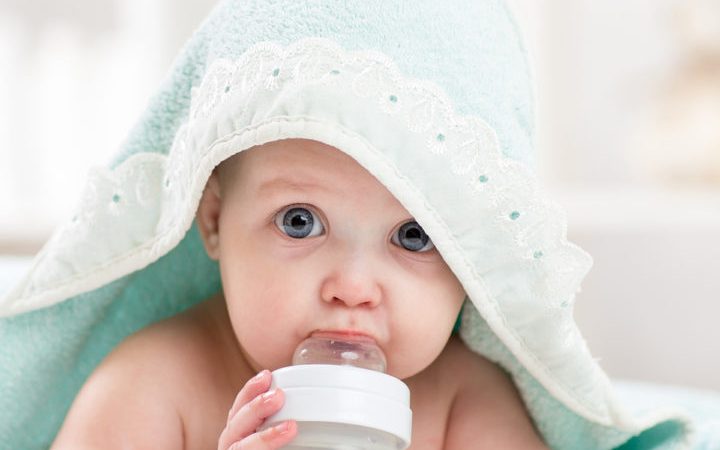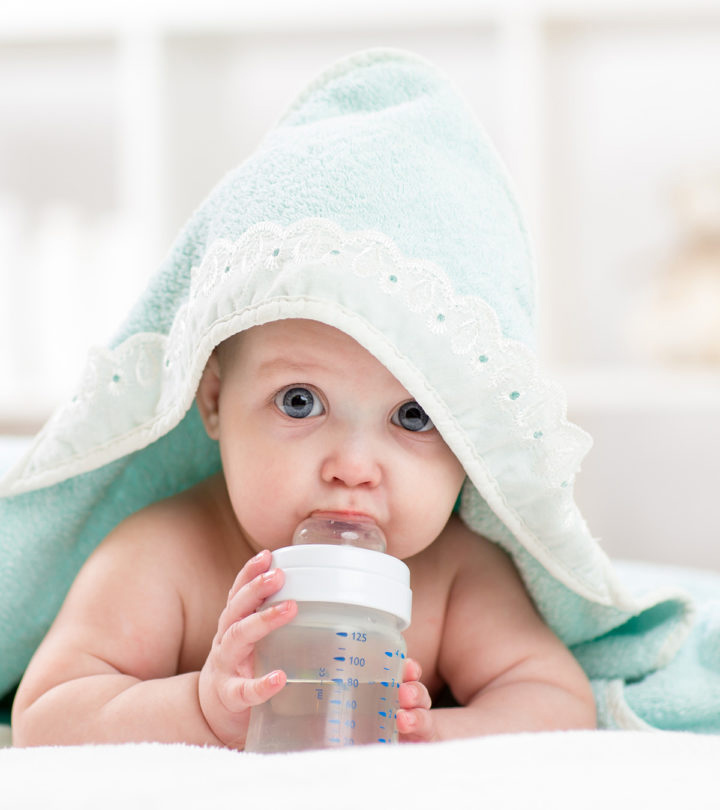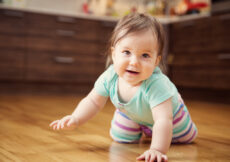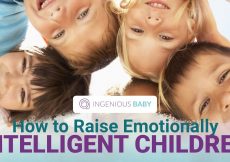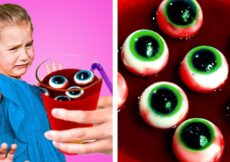Water is an essential resource that is also termed a “vital nutrient” for human survival. Just like adults, babies have their water needs which are small yet crucial. Feeding higher amounts of water than what their delicate system can handle can upset their body’s electrolyte balance.
Disturbed electrolyte imbalance can cause severe physiological changes, such as low body temperatures and seizures. This state is known as water intoxication. Water intoxication in babies is rare but possible when babies are fed water in excess amounts, often through excess dilution of formula or giving only water in place of ORS during phases of diarrhea.
Read this post to know more about the symptoms, potential causes, effects, and prevention strategies for water intoxication in babies.
How Much Water Should Babies Have?
Babies under six months of age should not drink water. Their hydration requirements at this age are optimally met by breast milk and formula. Thus, feeding them water can put them at a higher risk of water intoxication. From six months to 12 months, you can offer 0.5 to 1 cup (4 to 8oz. per day) of water to your baby each day if needed (1).
The recommended water quantity and breastfeeding or formula-feeding are sufficient to meet the infant’s hydration requirements. However, in some instances, such as hot weather and sickness, sipping extra water shouldn’t be a problem. Nonetheless, be cautious not to make it a habit.
Symptoms Of Water Intoxication In Babies
Excess water in the body causes hyponatremia, where the body’s sodium levels fall abnormally low. It could affect the functions of several organs, including the brain.
Below are some of the common signs and symptoms of hyponatremia in babies (2) (3).
- Unusually clear urine
- Dizziness and lethargy
- Irritability and fussiness in the otherwise happy baby
- Low body temperature (hypothermia) of less than 97°F (36°C)
- Nausea and vomiting
- Swelling of the extremities, i.e., arms, legs, and face
- Irregular breathing
- Fits if sodium levels fall too low
In extreme cases, water intoxication may lead to seizures and coma. If you observe any of these symptoms in your baby, consult a pediatrician.
Causes Of Water Intoxication In Babies
Babies don’t consume water voluntarily. Thus, water intoxication occurs when babies are fed excess water by caretakers in the following ways.
- Feeding water and diluted juices: Babies up to six months of age don’t require water. Their hydration needs are optimally met with exclusive breastfeeding or formula feeding. However, some parents may begin feeding water and diluted juices to their babies to keep them hydrated and offer nutrition. It is not suitable for the little one since their kidneys are immature to process water.
- Feeding excessively diluted formula: Different formula brands require different amounts of water for preparation. Experts advise parents to follow the instructions on the package and use the mixing ratio as mentioned. It is crucial as using less water than mentioned can make the formula too thick, which may lead to constipation in babies. On the other hand, using too much water can dilute the formula, disturbing the electrolyte balance and nutritional intake, increasing the risk of water intoxication (4) (5) (6).
- Feeding from a cup: Experts advise phasing out bottle use for babies between 12 and 24 months (7). Thus, babies begin sipping water from cups, causing them to gulp excess water when unmonitored.
Treatment For Water Intoxication In Babies
Water intoxication in babies is a state you can’t treat at home. Therefore, if your baby shows excessive water intake symptoms, taking your baby to the doctor is advisable. Depending on the severity of the symptoms, the doctor will chart a treatment plan to restore the body’s electrolyte balance and resolve symptoms.
In most cases, restricting the baby’s water intake and letting extra water exit the body through urination will resolve the condition. However, in severe cases, the doctor may recommend diuretics and the restoration of sodium levels through an intravenous saline drip.
Tips To Prevent Water Intoxication In Babies
Here are some simple tips to ensure your baby consumes water appropriately and in the right amounts.
- Don’t give water to babies under six months of age. Babies older than six months can have four to eight ounces (0.5 to 1 cup/day) of water each day.
- Speak to a pediatrician to learn how to determine if your baby is dehydrated and whether you must serve them water. Even in hot weather, infants may not require water, and frequent breastfeeding could be sufficient.
- Never overdilute the formula. You must follow the mixing ratio directed on the formula’s package.
- Never leave the baby unattended when they are sipping water from the cup and while they are bathing. Leaving a baby unmonitored could cause accidental ingestion of excess water.
Water intoxication in babies is rare but can lead to adverse effects, such as seizures. One can avoid it by staying vigilant on the amount of water they feed their baby and follow the proper dilution ratio while preparing formula. Overall, water intoxication is easily preventable if you keep the baby’s water intake under check.
References:
MomJunction’s articles are written after analyzing the research works of expert authors and institutions. Our references consist of resources established by authorities in their respective fields. You can learn more about the authenticity of the information we present in our editorial policy.
The following two tabs change content below.


